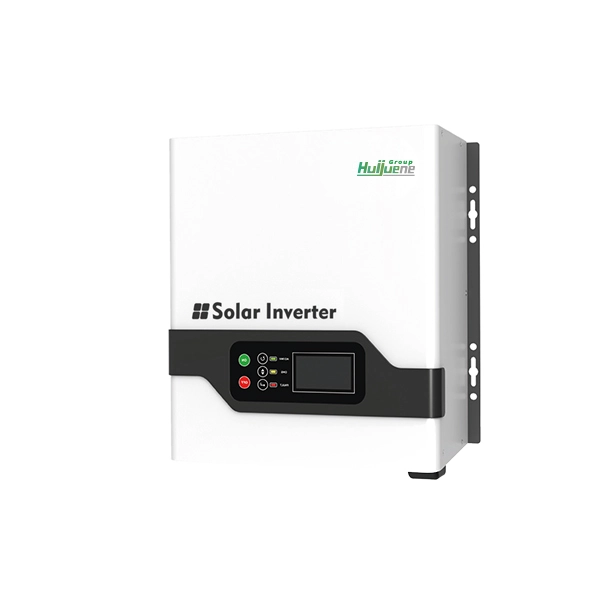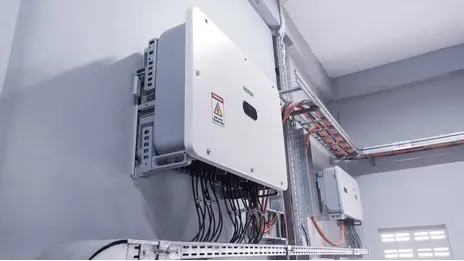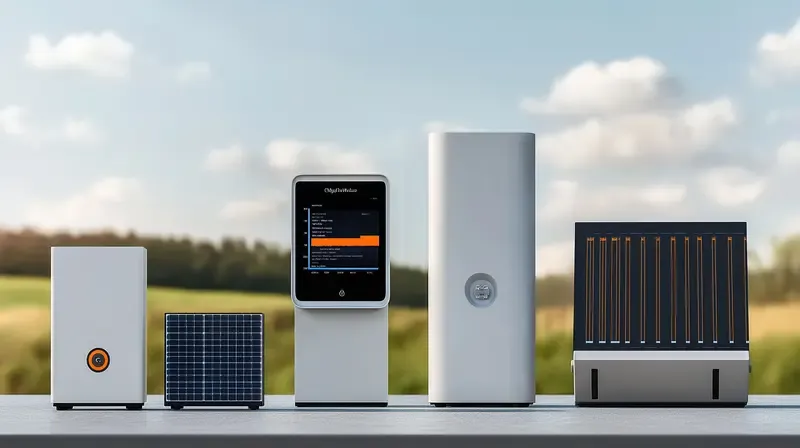When installing a solar panel system, the most common question is: do you need an inverter for solar panels? The answer is—yes, most of the time. But the "why" and "when" depend on your energy system, objectives, and types of appliances you want to power.
Let's unpick this and see when you need an inverter, when you don't need one, and what type you actually need.
Learning the Basics: What Does an Inverter Actually Do?
Solar panels generate direct current (DC) electricity. Sadly, most of the things we want to use—lights, fridges, laptops—work on alternating current (AC). That's when the inverter rescues the day. It converts DC from the solar panels to usable AC power.
Unless you have an inverter, your solar panels might be able to charge a battery, but not run typical household appliances. So the question actually is: are you going to run your solar system onto everyday AC appliances? Then you'll need an inverter. No exception.
Off-Grid vs. Grid-Tied Systems: Inverter Needs Could Vary
Your system type greatly decides whether or not you'll need an inverter:
- Grid-Tied System:Always has an inverter—most typically a grid-tie or hybrid model. It synchronizes your home with the utility grid and adheres to voltage specifications.
- Off-Grid System:Also has an inverter, but it usually comes with a battery bank and may have additional features like surge protection, frequency regulation, and remote monitoring.
- DC-Only System:Rare, but if it's just battery recharging or supplying specialized low-voltage devices (such as in an RV), you might not need one—but your application has to be very specific.
Ever ask yourself if you can power a cabin or camper with a small solar panel system without an inverter? In theory, yes—but only if every device that is plugged in accepts DC input. Most do not.
Real-World Example: A Solar-Powered School in Tanzania
Let's think of an example from real life. In 2022, Tanzania's Mlimani Primary School near Dodoma installed a 5kW off-grid solar system. It involved a lithium battery bank and a hybrid inverter. Why hybrid? Because sunlight is intermittent in the location and the occasional generator backup is required. The inverter controlled load, solar, and charging from the battery beautifully—one point of control.
That setup wouldn't be possible without an inverter. In practice, it would've risked damaging devices or wasting usable solar energy.

Types of Inverters and What They Can Do for You
Choosing the right inverter isn't quite so simple as a box to check. These are three most common types:
- String Inverters: Least costly for simple, centralized systems.
- Microinverters: Installed on each panel, better for partial shading or complex roof shapes.
- Hybrid Inverters: Combines solar, battery, and grid interaction—ideal for flexible power management.
And now, really, the most important question: How do you decide which one to use for your installation?
Answer: It is based on how many panels you're installing, whether you already have installed or plan to install batteries, and what kind of grid access you have in your area.
Island Installations and Mobile Units: The Inverter’s Role
Island communities or remote outposts often rely on solar containers or off-grid mobile systems. These are independent systems and need to manage generation, storage, and output on site. That is when MPPT charge controllers and hybrid inverters enter the picture.
For example, the Seychelles recently field-tested an initiative in which modular solar containers with integrated 10kW hybrid inverters were sent to power telecom stations and backup healthcare facilities. Without the inverter component, nothing in the equipment attached—most of it AC—would function reliably.
Last Words: So, Do You Really Need an Inverter?
Unless you're building a niche solar project that only uses DC devices (like a simple water pump or LED array), the answer is a resounding yes. An inverter is the bridge between your solar panels and your usable power. It provides stability, efficiency, and device compatibility.
If you're still unsure about the specifics, check out this sample of an all-in-one inverter option: LZYESS Solar Inverter Product Page
Quick Summary: When You Need an Inverter
Here's a quick summary:
- You're charging typical home devices (TV, fridge, AC)
- You want to store energy in batteries when there's surplus
- You don't want interaction with the grid or assistance from a backup generator
- You're planning a mobile or container-based off-grid setup

Bonus Insight: Smart Inverters and the Future of Solar
The solar universe is evolving fast. More and more systems now employ smart inverters, which involve cloud monitoring, reactive power control, and load forecasting. They're not just power converters—little power managers. Even some have VPPs (Virtual Power Plants) built-in, so your solar system can contribute to grid balancing.
Your inverter might not be the most glamorous part of your solar system, but it's definitely one of its most important. Don't skimp. Be smart, and your system will run cleaner, smoother, and longer.

